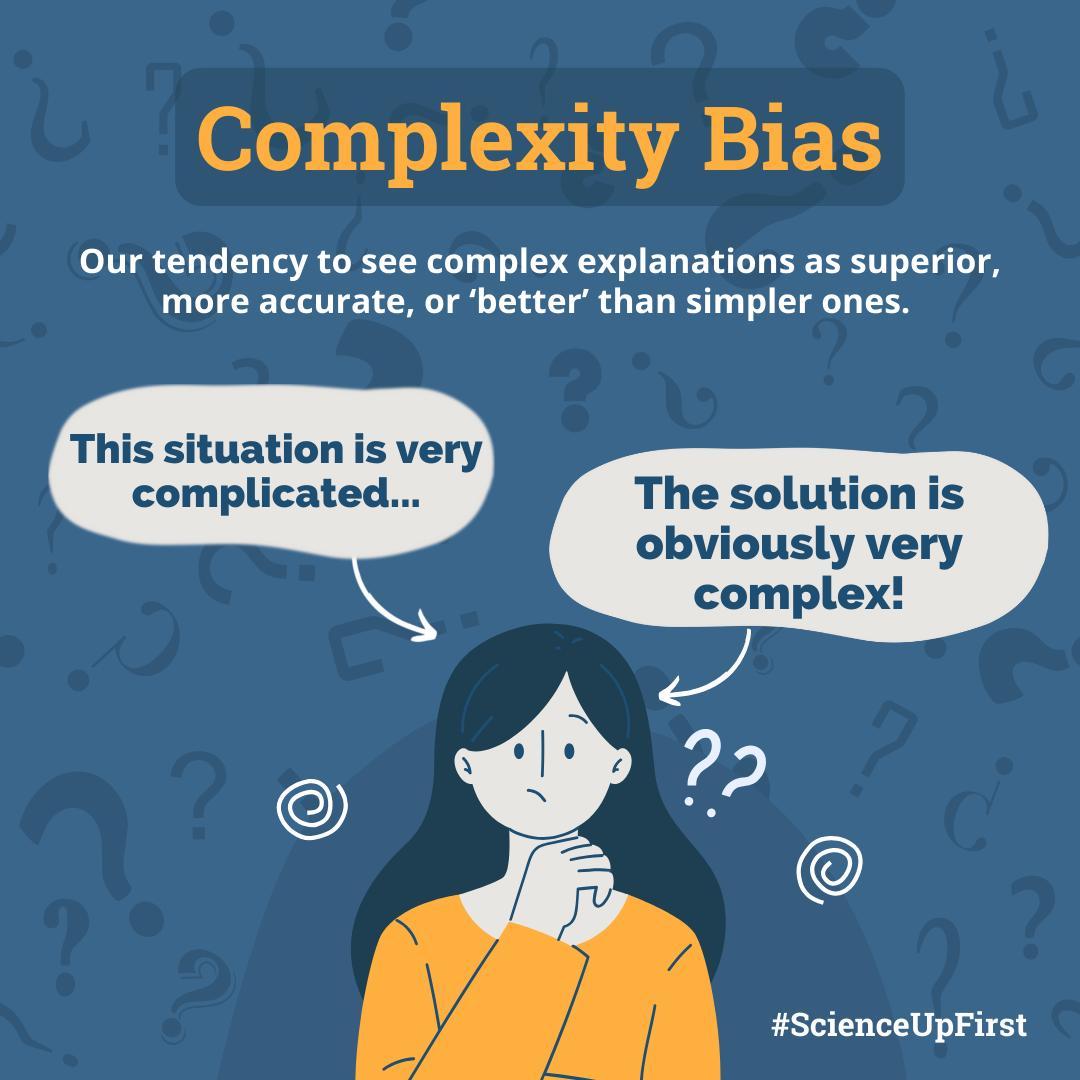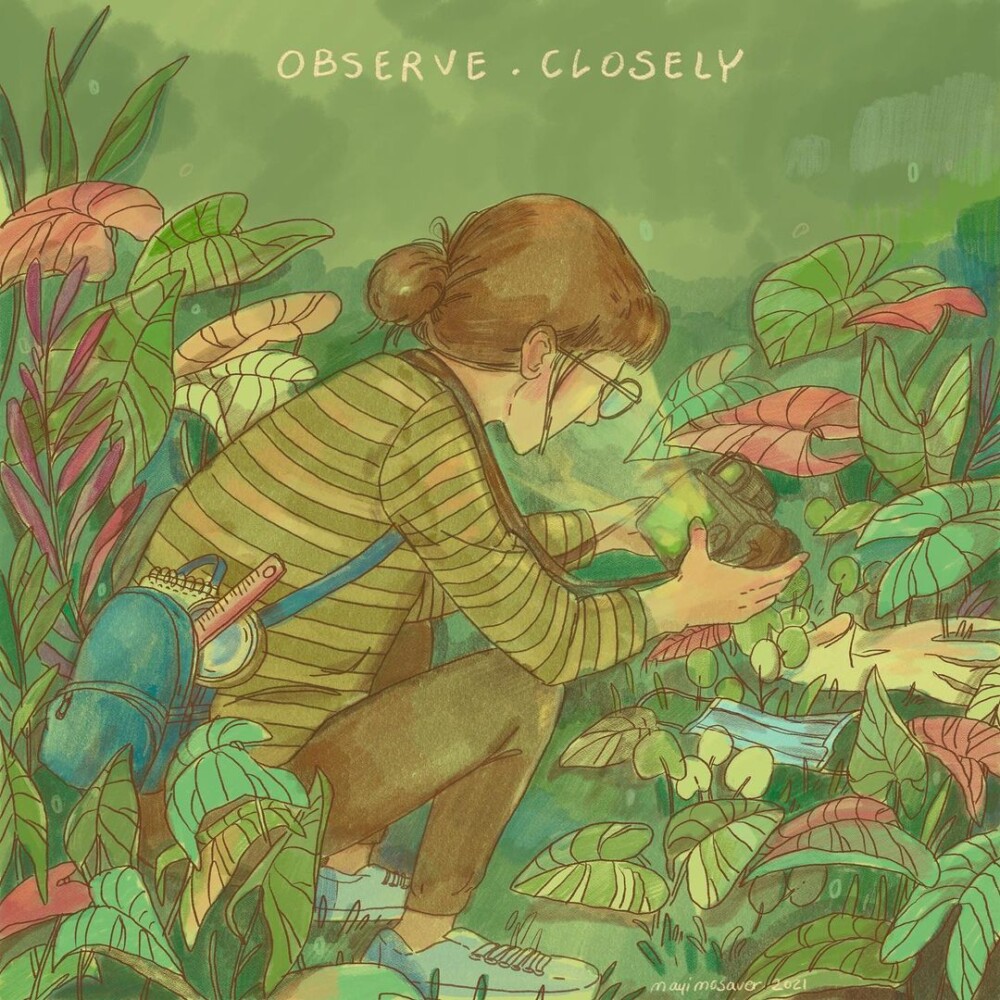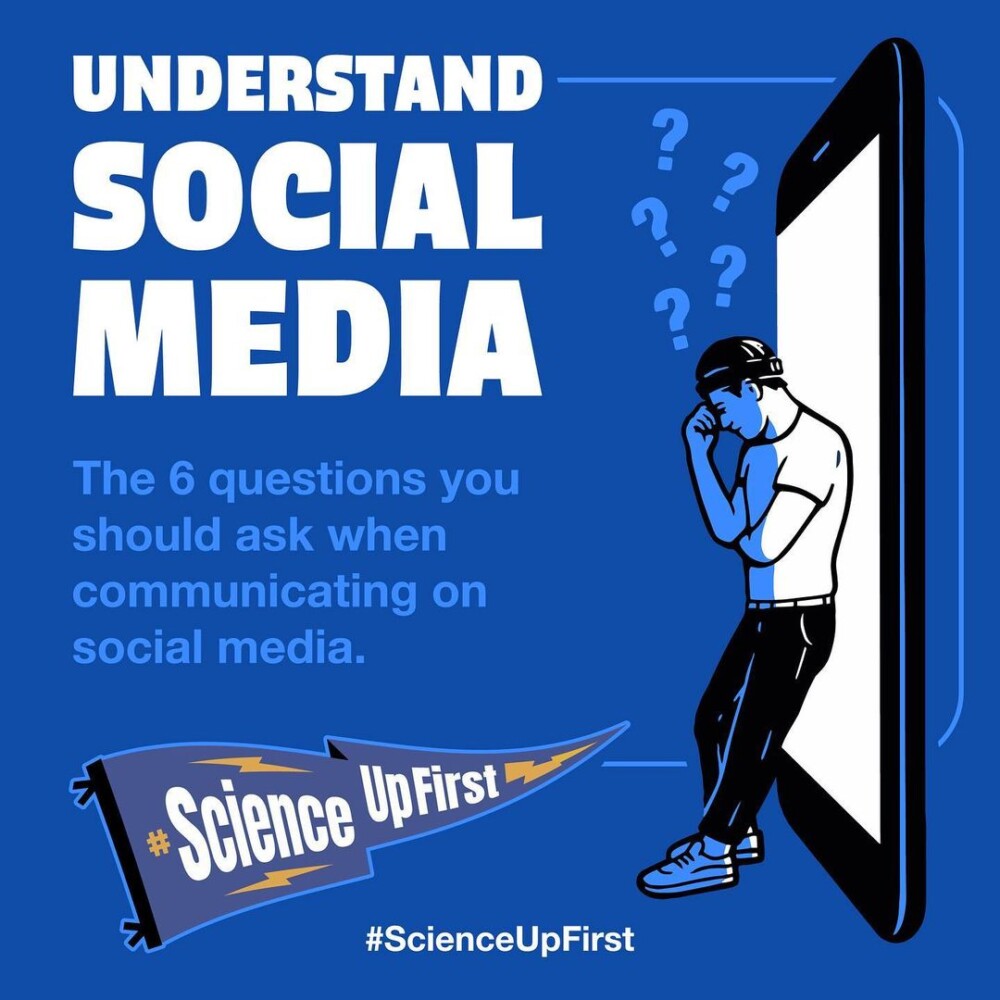
Have you ever bought products ‘boosted with peptides and essential ceramides’ or ‘enriched with superfoods and macro greens’ without fully understanding why, but assuming they must be better or healthier? If so, you might have a bias toward complexity.
Complexity bias is our tendency to prefer complex explanations over simpler ones, believing they’re more accurate or “better” – even though that’s often not the case (1-6).
Cognitive biases, like complexity bias, are mental shortcuts our brains use to quickly process information. These biases are often unconscious, yet they influence how we perceive situations and make decisions (7-9). In the case of complexity bias, by choosing the more complex solution, we mentally label the problem as being too complex and surrender our need to understand it fully – hence saving us time and energy (1).
Complexity bias can also lead us to believe in conspiracy theories. When we are faced with random or chaotic events, such as a major disaster, our brains crave order and explanation. This need can lead us to favor complex explanations of secret plots or hidden forces, even when a simpler explanation, like random chance, is more likely. This tendency to overcomplicate things is why complexity bias can be a breeding ground for misinformation (1,10-13).
By recognizing our biases, we can make more informed decisions and avoid falling victim to misleading information. The next time you’re faced with a complex problem, consider that it might not require an elaborate answer – sometimes, the simplest solution is the best one.
- Complexity Bias: Why We Prefer Complicated to Simple | Farnam Street
- Should you use shampoo that is sulfate free? | ScienceUpFirst | June 2024
- Should you buy nitrate/nitrite free products? | ScienceUpFirst | February 2024
- Phthalates in Cosmetics | U.S. Food and drug administration | May 2022
- Ceramides vs Peptides For Skincare: Uses, Benefits, and Differences | MediSearch
- Complexity and biases | Experimental Economics | March 2015
- Editorial: Highlights in psychology: cognitive bias | Front Psychology | July 2023
- Cognitive bias | Description & Examples | Britannica | March 2023
- (PDF) Representativeness heuristics: A literature review of its impacts on the quality of decision-making | Journal of Civil Engineering | January 2018
- Conspiracy Theory Crash Course | ScienceUpFirst | January 2024
- Why the internet went wild over HRH Princess Catherine’s “disappearance” | ScienceUpFirst | March 2024
- (PDF) A major event has a major cause: Evidence for the role of heuristics in reasoning about conspiracy theories | Social Psychological Review | October 2007
- The Psychology of Conspiracy Theories – Karen M. Douglas, Robbie M. Sutton, Aleksandra Cichocka, 2017 | Current Directions in Psychological Science | December 2017
Share our original Tweet!
Have you ever bought, without knowing why, a product “enriched with superfoods” and assumed that it had to be better?
— ScienceUpFirst | LaScienced'Abord (@ScienceUpFirst) November 22, 2024
Yes? Then you may have fallen for the complexity bias.
Let’s delve into this 👉 https://t.co/SaVmPvuWes#ScienceUpFirst pic.twitter.com/De4OqfKe11
View our original Instagram Post!



